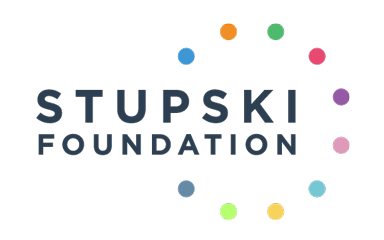Your questions answered
At Stupski Foundation, we’re working toward the day when our health, food, and postsecondary systems collectively promote well-being and abundance for everyone. Learn about how we’re approaching this work in partnership with our communities in our FAQs below.
At Stupski Foundation, we’re working toward the day when our health, food, and postsecondary systems collectively promote well-being and abundance for everyone. To realize that future, we are returning all our resources to the communities we call home by 2029. As we spend down, we commit to engage in adaptive philanthropy in partnership with those who advance equity in the following areas:
- Food Justice: We believe all people have a right to healthy, just, and culturally affirming food. We partner with communities to strengthen equitable local food economies rooted in relationships of care and community well-being.
- Health: We believe everyone has a fundamental right to health and holistic care that supports their physical, spiritual, and mental well-being. We partner with communities, policymakers, and institutions to close racial inequities in health and nurture healing throughout a person’s life. Specifically, we work in:
-
- Early Brain Development: We work with partners who strengthen bonds between children and their families during the early years of life and fund family-informed efforts to improve access to care that supports childhood development and lifelong health.
- Serious Illness Care: We partner with community-based organizations and health systems to ensure people living with serious illness have agency and access to the care they want and need to experience health and comfort through the end of life.
- Postsecondary Success: We believe all young people have the right to accessible postsecondary pathways that enable them to live, learn, and thrive in the communities they call home. We foster relationships, prioritizing care and wellness while centering youth voices to shift power, policy, and practice in the postsecondary ecosystem.
To make a significant impact within our spend down time frame, we focus on partners who primarily serve the communities we call home in Hawai‘i and the San Francisco Bay Area (especially Alameda and San Francisco Counties).
No. We do not plan to fund new rounds of open applications for new grantee partners. In June 2025, we accelerated our spend down to give the majority of our remaining funds to some of our existing partners. We plan to commit our remaining grant funds to support our existing partners through our spend down transition. If you are interested in learning more about our funding priorities and inquiring about funding opportunities, you may contact our staff via email or LinkedIn on their staff pages.
As we complete our spend down, we invite you to sign up for our newsletter to receive updates on the spend down and learn about our partners’ work.
We deeply admire the work that many organizations lead that aligns with our mission. However, we do not have enough resources to support every organization’s important work. Our priority is to support our existing partners with our remaining grantmaking funds during the closing chapter of the foundation.
At Stupski, we believe that the people closest to the challenges in our communities—not philanthropy—can best determine where funds can make lasting change. When we move dollars and decisions back into communities, we move closer to a society of solidarity, centered in justice and equity, where everyone can flourish. To realize that future, we are returning all of our resources to the communities we call home by 2029. Learn more about our spend down.
As we approach our spend down date and our endowment declines, we will provide fewer grants. In 2025, we accelerated our spend down to award most of our remaining assets this year. We do not anticipate issuing new grants after 2027.
Through dialogue with our partners, we are still learning how we can best support grantee partners’ health, success, and sustainability after we close our doors. This has led us to make less restrictive, longer, and larger grants; co-fund initiatives with other funding partners; and participate in funder learning communities. Additionally, we invest in efforts that contribute to social change leaders’ wellness and often host capacity building, networking, and peer learning spaces. Learn more about how we support our partners.
Stupski primarily funds organizations across Hawai‘i and the San Francisco Bay Area that advance early brain development, serious illness care, food justice, and postsecondary success. Learn about our current grantee partners in our grant directory, and browse a list of past grantee partners here.
Larry and Joyce Stupski were committed to giving back to the communities they called home—Hawai‘i and the San Francisco Bay Area. As the former president and chief operating officer of Charles Schwab Corp., Larry was passionate about using his success to create opportunities for others. Joyce, a longtime entrepreneur and former educator, shared this vision and applied her love of the arts, business acumen, and experiences working with students and families to the couple’s philanthropy. In 2014, Joyce established the Foundation as a spend down to continue the couple’s commitment and honor Larry’s memory following his passing. Joyce led the spend down until her passing in 2021 and oversaw more than $155 million in grant-making toward her spend down vision. Learn more about Joyce and Larry.
Larry and Joyce Stupski were committed to giving back to the communities they called home—Hawai‘i and the San Francisco Bay Area. Our team lives and works in these communities and feels the same love and responsibility to do all we can today so future generations can flourish. Stupski Foundation funds food justice, health, and postsecondary success in both places, and we customize our approaches to each community’s unique context.
Stupski invests in community leaders and organizations that are closest to the challenges our communities face and who best understand where funds can make lasting change. We believe the expertise of a diverse set of fields and perspectives is key to finding better ways of understanding issues, designing services, and disrupting complex systems. We work with community stakeholders to shift and share power and prioritize partnerships that transform systems that harm our communities.
Our partners help us grow into a more equitable funder and challenge our assumptions. We commit to adapting to meet our community’s evolving needs. One way we collect feedback is through the Grantee Perception Report (GPR) with the Center of Effective Philanthropy, an anonymous grantee partner survey. We conducted the GPR in 2020 and 2022.
Learn about how feedback from grantee partners in our 2022 GPR helped inform our priorities.

